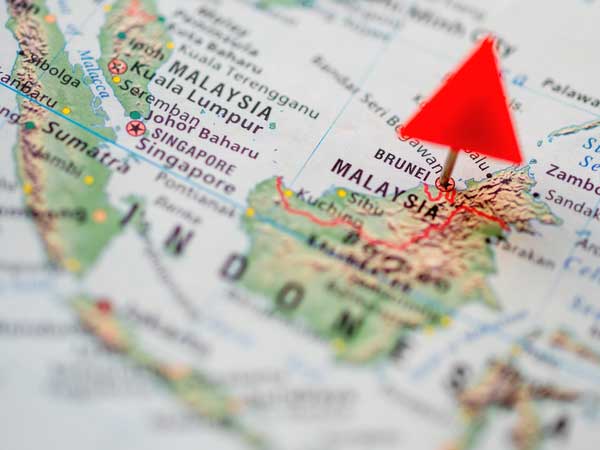The small but immensely prosperous nation of Brunei, nestled in the verdant Heart of Southeast Asia, is ruled by one of the world’s most legendary and wealthy monarchs – Sultan Hassanal Bolkiah. As the 29th Sultan of Brunei, Hassanal Bolkiah presides over a nation blessed with vast oil and gas reserves that have transformed Brunei into one of the richest countries on a per capita basis.

The Immense Wealth and Influence of the Sultan
Sultan Hassanal Bolkiah has an estimated personal fortune of over $20 billion, making him one of the richest individuals in the world. This colossal wealth is built upon Brunei’s abundant reserves of oil and gas, first discovered in 1929 and later exploited on a commercial scale from the 1970s onwards.
Brunei’s hydrocarbon resources, though modest by Middle Eastern standards, have endowed the tiny nation of less than half a million citizens with tremendous riches. Through prudent stewardship of the oil economy, the Sultan has channeled Brunei’s energy revenues into sovereign wealth funds invested globally. This diversification strategy has embedded the Sultan’s influence into the international financial system.
The Sultan’s astounding wealth manifests through an opulent lifestyle marked by a legendary car collection, grand residences across the globe, and a uniquely luxurious and customized Boeing 747 as his flying palace. His equally grand residence in Brunei, the sprawling Istana Nurul Iman palace, testifies to the scale of extravagance surrounding the monarch.
Yet, the Sultan’s riches also undergird Brunei’s prosperity, funding massive public infrastructure projects, social services, and educational institutions that provide citizens with an enviably high standard of living. The Sultan is thus both an emblem of individual fortune and the guardian of his nation’s riches.
The Interplay of Tradition and Modernity
While the trappings of wealth characterize the reign of Sultan Hassanal Bolkiah, equally notable is the interplay between tradition and modernity that shapes his leadership. Educated at the Royal Military Academy Sandhurst in Britain, the Sultan blends his Islamic upbringing and deep-rooted Bruneian identity with a global perspective.
This enables nuanced diplomacy where he leverages Brunei’s energy-derived economic clout to forge ties with both Western and Eastern nations. Domestically, he has spearheaded Brunei’s modernization while upholding its cultural heritage and religious values.
The Sultan’s private life also embodies the fusion of the traditional and the modern. As sanctioned by Islamic law and Bruneian royal custom, he practices polygamy with several wives and an extensive royal family. This adherence to tradition coexists with the Sultan’s willingness to break conventions in his marriages beyond the aristocracy.
The royal progeny from these unconventional unions often receive a global education, reflecting the Sultan’s multi-faceted worldview. Ultimately, the Sultan has maintained a fine equilibrium between celebrating tradition and gradually modernizing his nation.
The Energy Wealth Funding the Nation
Brunei’s immense oil and gas riches provide the foundation for the Sultan’s fortune and his nation’s prosperity. With the first oil wells drilled in 1929, Brunei’s economic destiny became intertwined with hydrocarbons. Commercial extraction took off after World War 2, transformed Brunei’s economy.
The 1970s and 80s saw a further boost, as soaring oil prices generated more wealth for Brunei’s government coffers. With prudent allocation of energy revenues, the Sultan put in place a social contract where citizens benefited from free healthcare, education, housing subsidies and no income taxes in exchange for acknowledging his absolute rule.
To avoid dependence on finite oil, the Sultan has directed portions of Brunei’s hydrocarbon income into sovereign wealth funds. These state investment vehicles have acquired substantial holdings in companies and properties abroad, further extending the Sultan’s economic clout globally.
Now as the world transitions away from fossil fuels, Brunei faces the pressing task of diversifying its economy under the Sultan’s stewardship. By focusing on sectors like halal food production, tourism and IT, Brunei hopes to chart a sustainable post-oil future.
The Sultan’s Journey to the Throne
Sultan Hassanal Bolkiah’s rise to the pinnacle of power in Brunei reveals the intricate grooming of an heir apparent. As royalty, his early education blended rigorous private tutoring focused on matters of state and religion alongside a deep cultural grounding in Bruneian traditions.
Later, he attended high school in Malaysia and then graduated from the Royal Military Academy Sandhurst in Britain, burnishing his leadership skills with a global perspective.
In 1967 at just 21 years old, Hassanal Bolkiah returned home to Brunei at a fortuitous political juncture. His father Sultan Omar Ali Saifuddien III soon abdicated, thrusting the young prince into the role of Sultan. His military training and broad worldview equipped him to consolidate power domestically and engage intelligently with foreign powers.
Over his long reign since 1968, the Sultan has carefully upheld Brunei’s sovereignty and guided its modernization. He portrays an image of benevolent royalty by providing citizens with prosperity and stability, funded by the expanding oil economy.
The Sultan’s Opulent Lifestyle
Sultan Hassanal Bolkiah leads an unparalleled lifestyle of wealth and extravagance, as befits one of the world’s richest monarchs. From his car collection to jets to regal attire, the scale of luxury surrounding him is legendary.
His car collection stored in several large garages is estimated at over 7,000 vehicles. Many are custom-made Rolls-Royces and Ferraris with unconventional features like gold-plated trim and alligator leather interiors. Similarly, his private Boeing 747 is furnished like a flying palace.
The Sultan owns lavish residences across the globe, but the main one is the sprawling Istana Nurul Iman palace in Brunei. With 1,788 rooms and 257 bathrooms, gold domes and crystal chandeliers, this bejeweled edifice is the seat of the Sultan’s power.
For a study in contrast, the Sultan also finances public infrastructure like mosques that support religious life in Brunei. This balances personal indulgence with investment in his people’s spiritual well-being.
The Intricacies of the Sultan’s Private Life
As allowed by Islamic law and Bruneian royal custom, the Sultan practices polygamy. He has several wives, along with a large extended family – a topic of immense fascination globally.
The Sultan’s first wife from an aristocratic background holds a powerful position and mothers the royal heir. His subsequent marriages to women of different social strata demonstrate more personal motivations, while still generating progeny entitled to privileges.
This complex family dynamic reveals the fine balance between upholding tradition and gradual modernization. The Sultan has maneuvered skillfully to maintain family unity, while presenting an image of benign leadership suited to a modernizing Brunei.
Securing Brunei’s Future Beyond Oil
With an eye toward a future less dependent on oil and gas, the Sultan has embarked on strategic economic diversification under the Brunei 2035 vision. Boosting sectors like halal food, tourism, and IT leverages Brunei’s advantages to reduce reliance on hydrocarbons.
Building human capital is also key, with investments in education to develop an innovative workforce that can support high-value industries. Environmental conservation and sustainable development further secure Brunei’s future.
The Sultan will play a pivotal role steering Brunei through this transition via his unique blend of royal aura and modern governance. Upholding Brunei’s Islamic identity and cultural values while embracing selective change will be his perennial balancing act as the nation modernizes.
Conclusion
The lavish yet complex world of Sultan Hassanal Bolkiah provides a fascinating window into Brunei’s unique monarchy. The Sultan’s wealth and power stand upon the bedrock of oil and gas, funding his celebrated extravagance and his nation’s prosperity. Tradition Bleeds into modernity in the royal family dynamics and the Sultan’s globalist outlook.
Guiding Brunei into a sustainable post-oil era will cap the Sultan’s legacy as a leader who bridged the old and the new. While challenges remain, the monarch’s multifaceted upbringing and deft diplomacy could steer this tiny country into a bright future.






